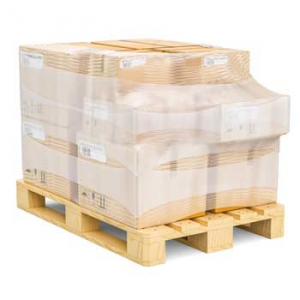West Virginia to West Virginia LTL Freight Quote
FREE, No Obligation LTL Freight Quote. Book Your LTL Freight Online for West Virginia to West Virginia
FREE LTL Freight Shipment Quote
West Virginia to West Virginia Less Than Truckload Shipment Rates
West Virginia to West Virginia LTL Shipping, connected to more than 6,400 LTL Carrier Drivers
Nationwide / West Virginia to West Virginia LTL Freight Quote
West Virginia, often known as the Mountain State, is strategically located in the mid-Atlantic region of the United States. This diverse and beautiful state is renowned for its mountainous terrain, making it an interesting challenge for freight logistics. Covering an area of 24,230 square miles with the Ohio River in the West and the Shenandoah and Potomac rivers in the East, West Virginia provides an essential thoroughfare for LTL (Less Than Truckload) freight transit.
West Virginia’s comprehensive network of highways, including interstates I-64, I-77, I-79, I-68, and I-70, makes the state a critical link for freight moving in the northeastern and southeastern United States. The state’s geographical location is central to many major metropolitan markets, making it a convenient and cost-effective choice for LTL freight logistics.
West Virginia also boasts multiple rail systems and connections to various ports and barge transportation services across the Ohio River, serving as a multi-modal transport solution to move LTL freight in, out, and around the state. This diversity in transportation modes makes for seamless and fluid freight logistics operations.
In West Virginia, significant industries such as advanced manufacturing, aerospace, automotive, biotechnology, and chemicals rely heavily on timely and efficient freight logistics services. A large volume of LTL freight carries these industries’ products across state lines and to multiple nationwide locations, signifying the role of LTL freight services in West Virginia’s economy.
LTL freight carriers in West Virginia provide an essential service, enabling businesses to ship smaller quantities of merchandise that do not require the use of an entire truck. They offer cost-effective solutions for industries, reducing their inventory overhead and enhancing their supply chain efficiency.
Overall, West Virginia’s combination of location, infrastructure, and diversity of industries creates an environment that is supportive and crucial for freight logistics, particularly LTL freight logistics, making it a key player in the national freight transportation network.
West Virginia, WV | Latitude: 38.9201705 | Longitude: -80.1816905
West Virginia is a state in the Southern United States. It is bordered by Pennsylvania to the north and east, Maryland to the east and northeast, Virginia to the southeast, Kentucky to the southwest, and Ohio to the northwest. West Virginia is the 10th-smallest state by area and ranks as the 12th-least populous state, with a population of 1,793,716 residents. The capital and largest city is Charleston which has a population of 49,055.
West Virginia was admitted to the Union on June 20, 1863, and was a key border state during the American Civil War. It was the only state to form by separating from a Confederate state, one of two states (along with Nevada) admitted to the Union during the Civil War, and the second state to separate from another state, after Maine separated from Massachusetts in 1820. Some of its residents held slaves, but most were yeoman farmers, and the delegates provided for the gradual abolition of slavery in the new state constitution. The state legislature abolished slavery in the state, and at the same time ratified the 13th Amendment abolishing slavery nationally on February 3, 1865.
West Virginia’s Northern Panhandle extends adjacent to Pennsylvania and Ohio to form a tristate area, with Wheeling, Weirton, and Morgantown just across the border from the Pittsburgh metropolitan area. Huntington in the southwest is close to Ohio and Kentucky, while Martinsburg and Harpers Ferry in the Eastern Panhandle region are considered part of the Washington metropolitan area, between Maryland and Virginia. West Virginia is often included in several U.S. geographical regions, including the Mid-Atlantic, the Upland South, and the Southeastern United States. It is the only state entirely within the area served by the Appalachian Regional Commission; the area is commonly defined as “Appalachia”.
LTL Freight Quotes and Services for West Virginia to West Virginia
Less-Than-Truckload (LTL) freight, as the name suggests, refers to the transportation of goods that do not require the full space of a truck. This method of shipping is ideal for businesses that have relatively small freight loads, typically ranging from 150 to 15,000 pounds. LTL freight offers a cost-effective solution for shippers by allowing them to pay only for the truck space they use, while the rest of the space is filled by other shippers’ freight. This type of shipping is a middle ground between parcel carriers and full truckload (FTL) freight, catering to businesses whose shipping needs fall somewhere in between.
There are several options and services available for LTL freight shipments. Standard LTL freight services usually include pickup and delivery, liftgate service at pickup or delivery, inside delivery, and residential service. However, customers can also opt for additional services such as expedited shipping, freeze protection for temperature-sensitive items, and guaranteed services for time-critical shipments.
Moreover, LTL freight allows for better tracking and increased security. Since LTL shipments often pass through multiple terminals where they are sorted and reloaded onto different trucks, they are frequently accounted for, reducing the likelihood of loss. This method also allows for better handling of fragile items as they are typically loaded onto pallets or into crates for protection.
LTL freight also offers flexibility in terms of shipment sizes. Whether you need to ship a single pallet or multiple pallets, LTL freight can accommodate your needs. In addition, some carriers offer volume services for larger shipments that don’t require a full truckload but are too large for standard LTL.
Getting LTL freight quotes online has never been easier. Various logistics companies provide online platforms where shippers can enter their shipment details, including the pickup and delivery locations, the weight and dimensions of the freight, and any additional services required. The platform then provides an instant quote from multiple carriers, allowing shippers to compare prices and services to choose the best option for their needs. Some platforms also offer the ability to book and track shipments online, providing a convenient and efficient way to manage LTL freight.
In conclusion, LTL freight is an efficient and cost-effective shipping solution for businesses with smaller freight loads. It offers a range of services and options to suit different shipping needs and allows for easy online quoting, booking, and tracking. With its flexibility and convenience, LTL freight is an excellent choice for businesses seeking to optimize their shipping processes

West Virginia Less Than Truck Load (LTL) Freight Team Drivers & Accessorials
LTL freight also offers team drivers and accessorials to help move and secure your load. Drivers are limited by law (HOS – hours of service) how many hours or miles they can drive in a single day. If you need your LTL shipment moved faster, team driver options provide a way to double the output and cut the delivery times in half. Accessorials also help ensure that your load has the attention it needs. From tarps and tie-downs to specific driver based requirements; LTL Freight has options to help ensure your freight has the best possible journey.
West Virginia LTL Freight Shipments, Rates, Loads and Tendering
In the end of it all; each LTL Freight Shipment goes through the same process every time! Quote Request > Quote > Quote Approval > Secure Carrier > Tender Load > Driver Details > Load Pickup > Load Transit > Load Delivered. Our team of experts will help you with your LTL Freight in West Virginia to ensure that you have the best team behind your shipment. Contact us today using the button below to get started – we are standing by!
West Virginia to West Virginia
West Virginia, often known as the Mountain State, is strategically located in the mid-Atlantic region of the United States. This diverse and beautiful state is renowned for its mountainous terrain, making it an interesting challenge for freight logistics. Covering an area of 24,230 square miles with the Ohio River in the West and the Shenandoah and Potomac rivers in the East, West Virginia provides an essential thoroughfare for LTL (Less Than Truckload) freight transit.
West Virginia’s comprehensive network of highways, including interstates I-64, I-77, I-79, I-68, and I-70, makes the state a critical link for freight moving in the northeastern and southeastern United States. The state’s geographical location is central to many major metropolitan markets, making it a convenient and cost-effective choice for LTL freight logistics.
West Virginia also boasts multiple rail systems and connections to various ports and barge transportation services across the Ohio River, serving as a multi-modal transport solution to move LTL freight in, out, and around the state. This diversity in transportation modes makes for seamless and fluid freight logistics operations.
In West Virginia, significant industries such as advanced manufacturing, aerospace, automotive, biotechnology, and chemicals rely heavily on timely and efficient freight logistics services. A large volume of LTL freight carries these industries’ products across state lines and to multiple nationwide locations, signifying the role of LTL freight services in West Virginia’s economy.
LTL freight carriers in West Virginia provide an essential service, enabling businesses to ship smaller quantities of merchandise that do not require the use of an entire truck. They offer cost-effective solutions for industries, reducing their inventory overhead and enhancing their supply chain efficiency.
Overall, West Virginia’s combination of location, infrastructure, and diversity of industries creates an environment that is supportive and crucial for freight logistics, particularly LTL freight logistics, making it a key player in the national freight transportation network.

West Virginia to West Virginia LTL Freight Services
Provide your LTL Freight load requirements and our team will secure the best market rate available to get you booked and loaded!
Once you have received your LTL Freight quote, once approved (onboarded) we will get your driver tendered and scheduled for pickup!
Once your load is LTL load is picked up, our team will help ensure that you have full transparency throughout the delivery journey!

 New Hampshire to Connecticut LTL Freight Quote
New Hampshire to Connecticut LTL Freight Quote